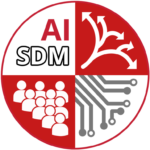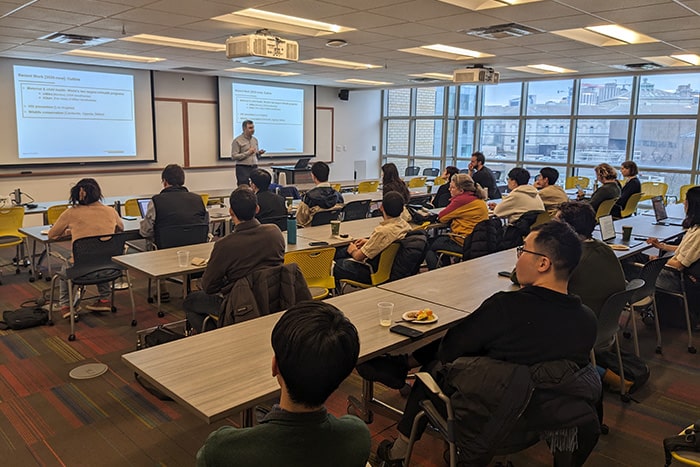
Missed an AI-SDM Seminar? Not to worry, you can access seminar recordings on the AI-SDM website.
Here are some highlights from past seminars:
Engineering Societal Systems for Efficiency and Equity, featuring Dr. Nikhil Garg from Cornell Tech
This session highlighted two projects that demonstrate the engineering of efficient and equitable societal systems. The first project involved the efficient and equitable allocation of government services.
The project involved New York City’s 311 system, which offers residents a way to submit service complaints to their local government. The crowdsourcing and decision-making system receives about 3M service requests annually and is the primary way the government learns of both urgent and routine service problems.
The pipeline from incidents to work orders for the Forestry Unit of the New York City Department of Parks and Recreation (NYC DPR) was long, with disparities at every stage and end-to-end delays and inefficiencies.
The project team sought to overcome missing data challenges using cross-report data and ultimately make optimal decisions to improve service level agreements. But there was a statistical challenge in distinguishing between under-reporting and some neighborhoods simply having fewer service problems, which highlights a fundamental benchmarking challenge that crosses contexts, including policing, healthcare, and ecology.
The second project covered in the session focuses on recommendation-matching systems in high-stakes settings. Examples of these systems include doctors’ medical residency matching and machine learning (ML) recommendations (e.g., Netflix, Spotify, LinkedIn, etc.). Watch the recording to learn the findings of both projects.
When AI Can No Longer Help: Agency Transfer Agreements for Assistive AI Systems, featuring Dr. Alex John London from Carnegie Mellon University
Note: The definition of “agency” in the context of this session is the capacity, condition, or state of acting, as in operating, or the quality or state of being functional, as in exerting force or influence.
The talk covered:
- Decisional capacity
- Strategies for AI to prolong or extend decisional capacity to facilitate independent living for older adults
- Agency transfer points
- Ethical issues surrounding advance planning for agency transfer points
AI is capable of supporting aging populations through early stages of their cognitive decline, especially with recent advancements in AI. For example, voice interaction technology makes limitations in navigating keyboards or touch screens less of an issue. And having multiple instances of an interactive smart assistant means it can help wherever it’s needed and perform multiple tasks at once – such as listen to a doctor’s advice during an appointment and take notes on that advice.
Areas where AI can be useful include helping someone to pay bills, schedule healthcare appointments, take medications, adhere to diet and exercise regimens, and monitor their health status.
But what are the vulnerabilities in offloading such cognitive tasks? Watch the recording to learn the real-world considerations in using AI during cognitive decline.




